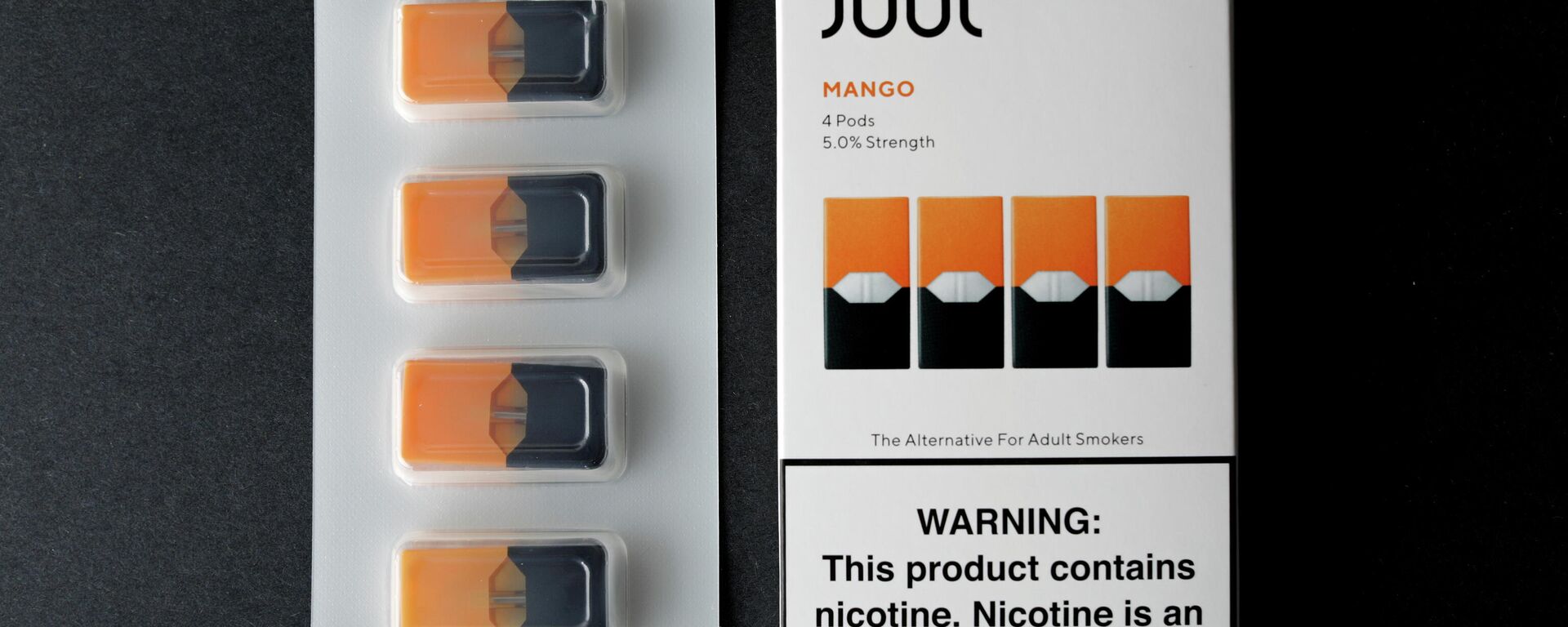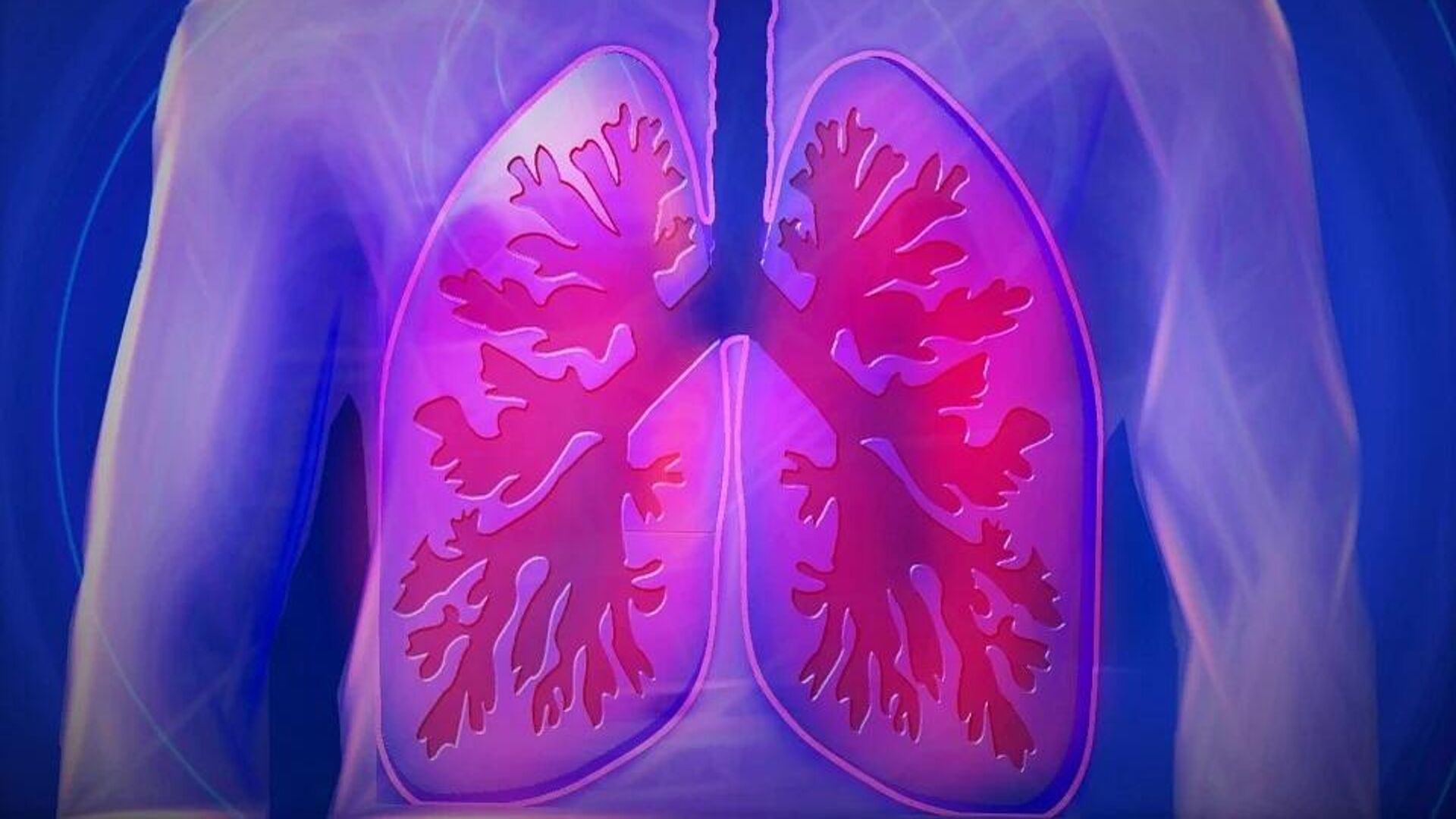https://sputnikglobe.com/20220527/dna-repair-genes-may-be-behind-mystery-of-why-many-lifelong-smokers-never-get-lung-cancer-1095825406.html
'DNA Repair Genes' May Be Behind Mystery of Why Many Lifelong Smokers Never Get Lung Cancer
'DNA Repair Genes' May Be Behind Mystery of Why Many Lifelong Smokers Never Get Lung Cancer
Sputnik International
Tobacco products cause up to 90 percent of lung cancer deaths in the United States, according to the Centres for Disease Control and Prevention (CDC). The US... 27.05.2022, Sputnik International
2022-05-27T14:22+0000
2022-05-27T14:22+0000
2022-05-27T14:22+0000
smoking
lung cancer
dna
us centers for disease control and prevention
https://cdn1.img.sputnikglobe.com/img/07e6/05/1b/1095822848_0:99:960:639_1920x0_80_0_0_631c10ace3a33d4189742ea64ff4e2f6.jpg
Furthermore, the findings could help explain why some people who never smoke at all nevertheless develop tumours.ve long been puzzled why not all lifelong smokers succumb to the disease.Genetics appear to have a key role to play in this, according to a new study published in Nature Genetics.In the US, cigarette smoking is the number one risk factor for lung cancer, linked to about 90 percent of the lung cancer deaths. The toxic mix of more than 7,000 chemicals in tobacco smoke is such, according to the Centres for Disease Control and Prevention (CDC), that even smoking a few cigarettes a day or smoking occasionally increases the risk of lung cancer.But the new American study, Single-cell analysis of somatic mutations in human bronchial epithelial cells in relation to aging and smoking, discovered that although tobacco smoke appeared to trigger extra cell mutations in the lungs, whether they develop into tumours hinges on an individual body’s ability to repair or reduce DNA damage.The research made use of genetic profiles taken from the bronchi of 14 never-smokers and 19 light, moderate, and heavy smokers.Surface cells were collected from the lungs of the participants aged between 11 and 86 years and sequenced individually to measure mutations in their genomes.Cells lining the lungs of people who smoke but never develop lung cancer appeared less likely to mutate over time, the study revealed.Accordingly, DNA repair genes appeared to be more active in some individuals, safeguarding them against cancer even if they regularly smoked.According to the authors of the study, the findings "unequivocally demonstrate" that mutations in the human lung increase with natural age. However, the heaviest smokers did not have the highest “mutation burden”.Furthermore, the findings could help explain why some people who never smoke at all nevertheless develop tumors.Genes that are responsible for DNA repair can be inherited or acquired. But they are not the only key factor here. Cancer risk can also be influenced by environmental factors like diet, as nutrients in the body may impact tumour development, added scientists.It is still an open question as to what exactly makes some individuals’ bodies better equipped to repair DNA."We now wish to develop new assays that can measure someone's capacity for DNA repair or detoxification, which could offer a new way to assess one's risk for lung cancer", summed up geneticist Jan Vijg of the Department of Genetics, Albert Einstein College of Medicine, who was also behind the research.
https://sputnikglobe.com/20220402/cannabis-bong-smoking-generates-more-fine-particulate-matter-than-cigarette-study-shows-1094420114.html
https://sputnikglobe.com/20210930/over-2mln-us-teens-smoke-e-cigarettes-8-in-10-use-flavored-versions-1089560205.html
Sputnik International
feedback@sputniknews.com
+74956456601
MIA „Rossiya Segodnya“
2022
News
en_EN
Sputnik International
feedback@sputniknews.com
+74956456601
MIA „Rossiya Segodnya“
Sputnik International
feedback@sputniknews.com
+74956456601
MIA „Rossiya Segodnya“
smoking, lung cancer, dna, us centers for disease control and prevention
smoking, lung cancer, dna, us centers for disease control and prevention
'DNA Repair Genes' May Be Behind Mystery of Why Many Lifelong Smokers Never Get Lung Cancer
Tobacco products cause up to 90 percent of lung cancer deaths in the United States, according to the Centres for Disease Control and Prevention (CDC). The US national public health agency also warns in its guidance that people who smoke cigarettes are 15 to 30 times more likely to die from lung cancer than people who do not smoke.
Furthermore, the findings could help explain why some people who never smoke at all nevertheless develop tumours.ve long been puzzled why not all lifelong smokers succumb to the disease.
Genetics appear to have a key role to play in this, according to a
new study published in Nature Genetics.
In the US, cigarette smoking is the number one risk factor for lung cancer, linked to about 90 percent of the lung cancer deaths. The toxic mix of more than 7,000 chemicals in tobacco smoke is such, according to the Centres for Disease Control and Prevention (CDC), that even smoking a few cigarettes a day or smoking occasionally increases the risk of lung cancer.
But the new American study, Single-cell analysis of somatic mutations in human bronchial epithelial cells in relation to aging and smoking, discovered that although tobacco smoke appeared to trigger extra cell mutations in the lungs, whether they develop into tumours hinges on an individual body’s ability to repair or reduce DNA damage.
The research made use of genetic profiles taken from the bronchi of 14 never-smokers and 19 light, moderate, and heavy smokers.
Surface cells were collected from the lungs of the participants aged between 11 and 86 years and sequenced individually to measure mutations in their genomes.
Cells lining the lungs of people who smoke but never develop lung cancer appeared less likely to mutate over time, the study revealed.
"These lung cells survive for years, even decades, and thus can accumulate mutations with both age and smoking. Of all the lung's cell types, these are among the most likely to become cancerous", explained epidemiologist and pulmonologist Simon Spivack from the Albert Einstein College of Medicine.
Accordingly, DNA repair genes appeared to be more active in some individuals, safeguarding them against cancer even if they regularly smoked.
According to the authors of the study, the findings "unequivocally demonstrate" that mutations in the human lung increase with natural age. However, the heaviest smokers did not have the highest “mutation burden”.
“Our data suggest that these individuals may have survived for so long in spite of their heavy smoking because they managed to suppress further mutation accumulation. This leveling off of mutations could stem from these people having very proficient systems for repairing DNA damage or detoxifying cigarette smoke", said Spivack.
Furthermore, the findings could help explain why some people who never smoke at all nevertheless develop tumors.

30 September 2021, 21:15 GMT
Genes that are responsible for DNA repair can be inherited or acquired. But they are not the only key factor here. Cancer risk can also be influenced by environmental factors like diet, as nutrients in the body may impact
tumour development, added scientists.
It is still an open question as to what exactly makes some individuals’ bodies better equipped to repair DNA.
"We now wish to develop new assays that can measure someone's capacity for DNA repair or detoxification, which could offer a new way to assess one's risk for lung cancer", summed up geneticist Jan Vijg of the Department of Genetics, Albert Einstein College of Medicine, who was also behind the research.



